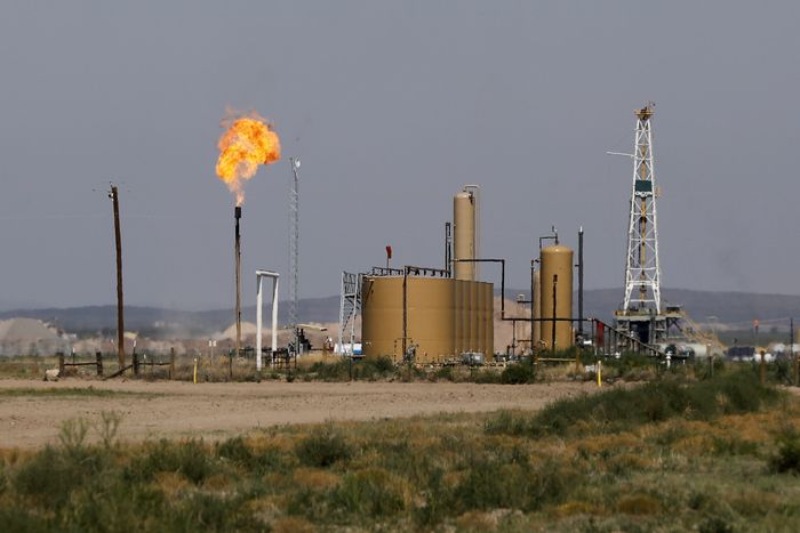Two of the biggest natural gas producers in the US, Chesapeake Energy and Southwestern Energy, announced intentions to join on Thursday in an all-stock transaction valued at $7.4 billion. The new business would grow to be among the biggest energy producers in the country, with a major presence in Texas and Louisiana.
With a combined market worth of over $24 billion, the two businesses would be able to take on competitors like EQT and Chevron. The price of Chesapeake’s shares had increased by over 5% by Thursday afternoon.
This is the most recent in a string of acquisitions and mergers involving American corporations that produce natural gas and oil. Chevron declared in October that it will buy Hess for $53 billion. Two weeks prior, Pioneer Natural Resources, a significant producer in Texas’ Permian Basin, was acquired by Exxon Mobil for $60 billion.
“Bringing Chesapeake and Southwestern together will reduce overall costs,” Peter McNally, an energy analyst at the research firm Third Bridge, wrote in a note, but there is “little likelihood of these companies influencing the price of natural gas, which is increasingly becoming a global market.”
The U.S. benchmark oil price, West Texas Intermediate, has dropped by more than 40% since June 2022. As global economy slows, oil prices are predicted to fall even further this year. According to the International Energy Agency, oil demand will reach a plateau by 2030 as renewable energy sources replace fossil fuels, marking the end of the oil boom.
As a leader in shale gas extraction, Chesapeake contributed significantly to the US becoming a net exporter of natural gas. However, recent years have seen instability inside it. With over $20 billion in debt, it declared bankruptcy in June 2020, primarily as a result of one of its founders, Aubrey McClendon, overextending the business’s activities.
In the 2000s, Chesapeake became one of the top producers in the nation by rapidly drilling and extracting gas from shale rock in states like Texas, Louisiana, and Oklahoma, under the leadership of Mr. McClendon, who assisted in founding the company in 1989.
However, the business produced more natural gas than was needed, which caused Chesapeake to collapse at the same time as the industry saw a significant downturn in the early 2010s. In 2013, Mr. McClendon, who was also a partial owner of the National Basketball Association’s Oklahoma City Thunder, resigned as the company’s CEO amid allegations of wrongdoing.
Through the bankruptcy process, Chesapeake was able to lower its debt by early 2021. Since then, it has increased the scope of its business, acquiring Vine Energy, a rival in the natural gas market, in August of that same year. Additionally, it increased output in East Texas and Louisiana’s Haynesville Shale region.
Southwestern Energy concentrates its operations in Appalachia; in 2021, the region accounted for over 90% of the company’s output and 75% of its reserves, according to a filing with the Securities and Exchange Commission. The Haynesville Shale region has the majority of its reserves, providing the recently combined firms with an excellent opportunity to grow their business.
Andrew Dittmar, an energy analyst at the research firm Enverus, said the purchase “combines high-quality drilling opportunities” and “proximity to a burgeoning market for gas” that would help improve U.S. exports.
Southwestern Energy has been struggling lately; since 2014, when the oil and natural gas markets saw a significant decline, the company’s share price has dropped by more than 85%.
The transaction needs shareholder approval and regulatory clearance. According to the firms, the merger should be finalized by the end of June.
Topics #Multibillion-Dollar Merger #Natural Gas #US










